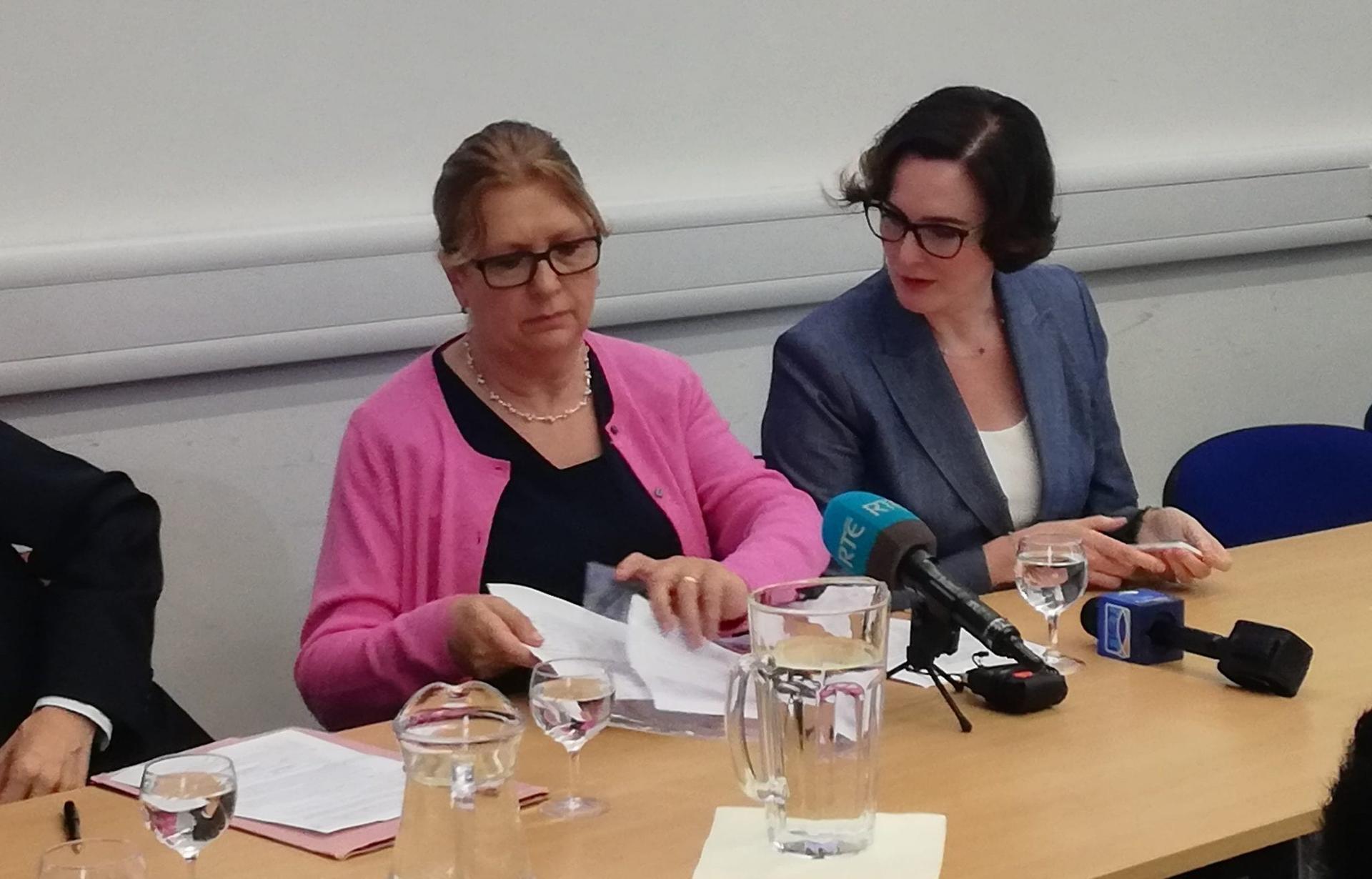DUBLIN – Just a few days before Pope Francis’s visit to the World Meeting of Families in Dublin, a former Irish president promised to challenge the Catholic Church’s “skewed ideology” on human sexuality and same-sex couples.
“The Church must accept and exercise responsibility for the damage it causes to our young LGBTI people and to our children, our vulnerable children,” said Mary McAleese, who led Ireland between 1997 and 2011 and has been a vocal critic of the Church on issues such as women’s participation and the LGBT community.
Her comments were made during the launch of a new academic research report on “LGBT Catholics & Gender Theologies” by the Wijngaards Catholic Research Institute during a press conference at Trinity College in Dublin, Ireland Aug. 20. The aim of the report is to challenge the Church’s teaching on homosexuality by addressing the main doctrinal arguments and bringing to the fore the latest scientific, biologic and psychologic developments.
“We are at a tipping point and it’s been a long time coming,” McAleese said. “How this particular ‘kairos’ moment is handled by those who are responsible for the Church’s government will impact the future of the Church and whether it has a future or whether it collapses onto itself.”
The former president, who also has a son who is gay and an activist for the LGBT community, said that she has no doubt that the report will be of “seminal importance” in bringing what she believes to be necessary change to the Catholic Church in its relation to homosexuality.
McAleese made headlines back in March when she was excluded from participating at a conference on women in the Church that was set to take place in the Vatican. She also recently criticized baptisms as an attempt to create “child conscripts” within the Catholic Church.
She highlighted the large influence that Catholic schools have in the education of young people in Ireland and around the world. A study made by LGBT Ireland, she said, showed that the instances of self-harm, attempted suicide, anxiety and depression among LGBT Catholic youths is two, if not three times higher than those for heterosexual Catholics of the same age group.
“Those children have the right to information and formation that helps them grow and develop. They have the right to not be subjected to what has the potential to damage them,” she said, “to make them vulnerable even in their own homes and in their communities.”
McAleese praised the recent legal developments in the Republic of Ireland that have led to the legalization of gay marriage and the legalization of abortion, referring to it as proof that many in society believe that much of the Church’s teaching on sexuality “is just wrong.”
“In very recent weeks the pope who said he would not touch doctrine indeed reversed centuries of Church teaching on capital punishment,” she said, referring to Francis’s decision earlier this month to state the inadmissibility of the death penalty.
“That is an encouragement for those of us who also want him to change Church doctrines on other areas,” she said. “The pope in changing the law on capital punishment exercised for the first time his full primatial power on the Catholic Church. I would like to see him do that a bit more.”
According to McAleese, who holds a masters degree in canon law and is currently pursuing a PhD in canon law at the Pontifical Gregorian University in Rome, the Church’s teaching on homosexuality leads to homophobia, and she called it “dangerous and damaging.”
In light of the recent sexual abuse scandals, the issue of homosexuality has been raised in connection with child protection within the Church. For McAleese, any connection between homosexuality and abuse is an “appalling betrayal of children” and a way “to look for easy, trite answers that simply flatter the Church’s teaching.”
The time has come to hold clergy and the Church’s hierarchy accountable, she added, considering the many cases where they exercised their power to harm children and vulnerable adults. According to the former president, the sexual abuse crisis is one side of the issue but it’s also time for the Church to address the psychological damage of many in the LGBT community.
“We now need to address the mental and emotional torture of children, which we may have overlooked, in the same way we need to address the sexual abuse in the Church,” she said.
Francis’s famous “Who am I to judge?” quote’s reference to homosexuality symbolized promise for change, McAleese said. “The problem is that his Church judges, and its teaching is judgmental,” she added.
“We who have lived with the hurt and pain [of the LGBT community] for too long know its source and know that it has not been Christ,” she concluded.














